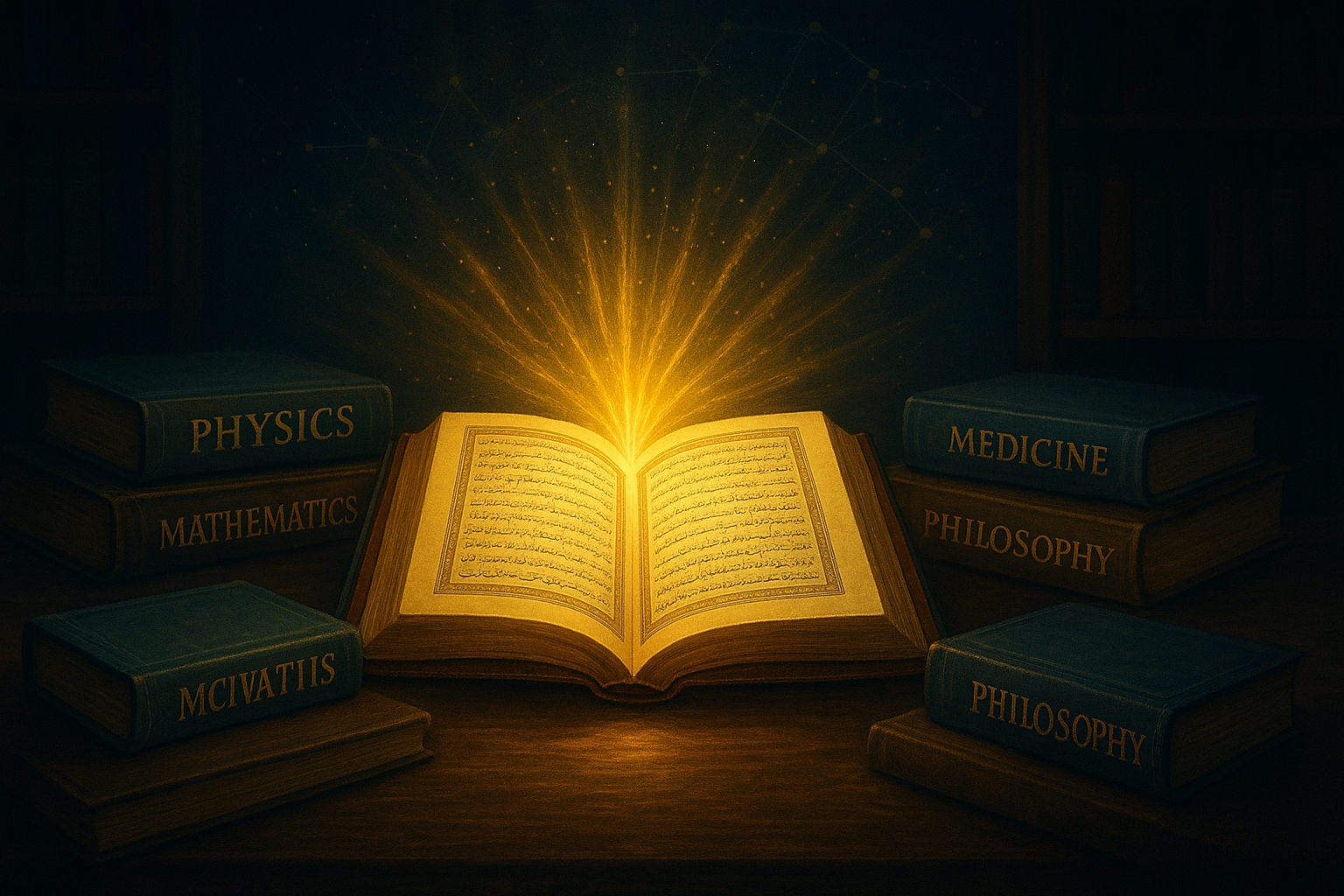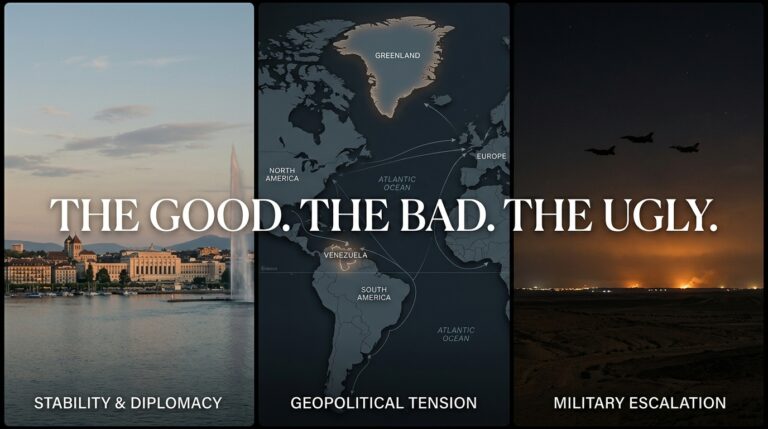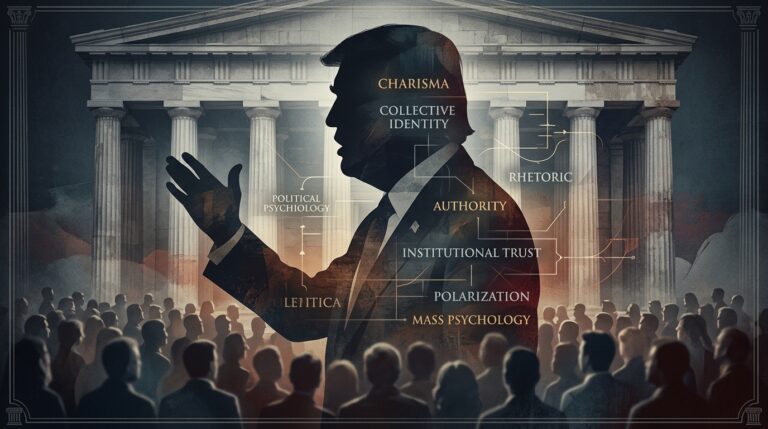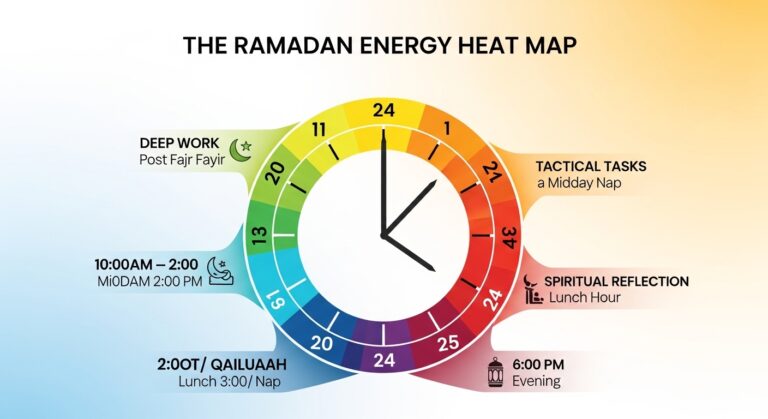Reconnecting Knowledge with Tawheed: The Divine Origin of Human Learning
Abstract
The Islamic worldview recognises all knowledge as divine revelation (Ilm Rabbani). Human intellect merely uncovers fragments of this infinite knowledge according to the will of Allah. However, modern civilisation, shaped by materialism and secular thought, has detached knowledge from its divine source, leading to intellectual arrogance and philosophical confusion. This paper proposes a corrective framework that re-establishes the principle of Tawheed (Oneness of Allah) as the epistemological foundation of all human inquiry. It recommends dedicating the first chapter of every academic discipline to acknowledging Allah as the source of all knowledge, thereby restoring harmony between revelation and reason, faith and science.
Theme
Knowledge (‘Ilm) in Islam is not a human creation but a divine trust. The Qur’an repeatedly emphasizes that Allah is the ultimate source of all understanding: “He taught man what he knew not” (Al-‘Alaq 96:5). Every discovery, invention, or intellectual insight is a form of unveiling — not generating — divine knowledge. This paper seeks to reaffirm that truth by integrating Tawheed into the very foundation of modern education.
Aim
To construct a universal epistemological and educational model that attributes all human knowledge to Allah (SWT), and to establish a standardized academic principle wherein the divine source of knowledge is explicitly acknowledged in every field of study.
Scope
This research encompasses:
- The Qur’anic and philosophical foundations of knowledge.
- The role of human intellect as a means of discovery rather than creation.
- The universality of divine knowledge distribution.
- The intellectual consequences of misattribution.
- The framework for restoring Tawheed in education, with examples from key disciplines.
Introduction
The Qur’an presents knowledge as both revelation and discovery. Allah (SWT) states:
“He taught Adam the names of all things.” (Al-Baqarah 2:31)
“He taught man what he knew not.” (Al-‘Alaq 96:5)
From these verses, it is clear that knowledge exists in the divine order before human discovery. Man’s role is to explore, recognize, and apply that knowledge within the bounds of divine morality. Science, when viewed through this lens, becomes the study of Allah’s signs (Ayat Allah) manifested in creation.
However, contemporary educational paradigms — especially in the post-Enlightenment West — have secularized knowledge. They celebrate human intellect while excluding divine reference. This philosophical shift has led to fragmentation of knowledge, spiritual emptiness, and the illusion of independence from the Creator. Science has been elevated from a method to a metaphysics, and reason from a tool to a deity.
The consequence is a bipolar civilization: one side consumed by material inquiry devoid of faith, and the other clinging to faith without intellectual integration. Islam offers the corrective unity — Tawheed — which binds all forms of learning under one divine source.
Discussion
-
The Concept of Knowledge in Islam
In Islam, ‘Ilm is sacred because it originates from Allah, Al-‘Aleem (The All-Knowing). Islamic epistemology recognizes two complementary streams of knowledge:
- Revealed Knowledge (‘Ilm al-Wahyi) — Divinely communicated through prophets and scriptures.
- Acquired Knowledge (‘Ilm al-Kasbi) — Discovered through observation, reflection, and rational effort.
Both derive from the same source. The Qur’an encourages contemplation of nature as an act of worship:
“We shall show them Our signs in the horizons and within themselves until it becomes clear to them that it is the Truth.” (Fussilat 41:53)
Hence, studying creation is not separate from studying revelation; both are avenues to understanding the same reality — the will of Allah.
-
The Human Role as Discoverer, Not Creator
Human beings are khulafa’ (vicegerents), not creators of knowledge. They uncover what Allah has already placed within the universe. The precision of natural laws, biological systems, and cosmic harmony reflects Qadr Allah — the divine measure.
When Newton described gravity or Ibn al-Haytham developed optics, they were interpreting divine patterns, not inventing them. Recognition of this fact nurtures humility and moral integrity. Arrogance arises when man imagines himself as the originator rather than the recipient of wisdom.
-
The Universality of Divine Distribution
Allah grants knowledge universally:
“He gives wisdom to whom He wills, and whoever has been given wisdom has certainly been given much good.” (Al-Baqarah 2:269)
Thus, even non-Muslim scientists and thinkers receive portions of divine wisdom according to Allah’s will. Their discoveries, though often detached from theological consciousness, are still part of the divine unfolding of knowledge for the benefit of mankind. Recognizing this truth prevents sectarian pride and fosters gratitude.
-
The Error of Misattribution
Modern civilization attributes knowledge to “Science,” “Nature,” or “Chance,” while these are merely linguistic veils for divine action. Science does not “create” laws — it observes them. Nature does not “design” systems — it manifests design. Chance does not “produce” order — it denies the very logic it depends upon.
This misattribution has created a moral vacuum in intellectual life. Detached from the Creator, knowledge loses its ethical compass, resulting in destructive technologies, ecological exploitation, and moral confusion. The world today suffers not from lack of information, but from loss of meaning.
-
The Intellectual Limitation of Denial
A striking irony of the modern age is that many non-believing scientists expend enormous intellectual effort in denying the existence of God. Their inquiries are driven less by curiosity and more by an ideological need to justify disbelief. This mental bias blinds them from perceiving the divine coherence behind observable phenomena.
On the contrary, belief in an All-Knowing and All-Powerful Creator simplifies understanding. For the believer, the order of the universe is not a mystery but a manifestation of divine wisdom. Accepting the omnipotence of Allah transforms scientific investigation from resistance into recognition.
Had humanity collectively acknowledged Allah’s sovereignty instead of contesting it, its intellectual and moral evolution would have advanced far beyond the current state. Faith liberates the intellect; denial constrains it within the walls of self-deception.
-
Reconnecting Knowledge with Tawheed
To restore unity between faith and inquiry, the educational structure must be realigned with Tawheed. Every field — from physics to medicine, from economics to social sciences — should begin with a foundational chapter acknowledging Allah as the source of knowledge. This can be standardized as:
Chapter 1: The Divine Origin of Knowledge
(Tawheed in Knowledge)
Example I – Physics: The Divine Laws of the Universe
- The universe operates by divine command (Amr Allah).
- Physical laws manifest divine regularity.
- “And He has subjected to you whatever is in the heavens and the earth, all from Him.” (Al-Jathiyah 45:13)
- Studying physics is observing Sunnat Allah — His consistent patterns in creation.
Example II – Medicine and Biology: The Divine Origin of Life and Healing
- Life is a sacred act of creation.
- “Then We made him a sperm-drop… then breathed into him of Our Spirit.” (As-Sajdah 32:8–9)
- Healing occurs by Allah’s permission; medicine is only a means.
- Recognition of divine authorship instills ethical restraint in biological research.
Example III – Economics: The Divine Principles of Sustenance
- All sustenance (Rizq) emanates from Allah: “There is no creature on earth but its provision is upon Allah.” (Hud 11:6)
- Economic equilibrium mirrors Mizan (divine balance).
- Detachment from divine law (through riba, hoarding, or greed) leads to social imbalance.
- True economics begins by acknowledging Allah as Ar-Razzaq (The Provider).
-
Educational and Civilizational Implications
Implementing this paradigm would:
- Eliminate the false conflict between religion and science.
- Reorient academic pursuit toward humility and purpose.
- Unite intellectual traditions under divine accountability.
- Empower Muslim scholars to lead global discourse on ethical knowledge systems.
Conclusion
Knowledge is among the greatest manifestations of divine mercy. When attributed to false sources, it becomes a weapon of arrogance; when linked to Allah, it becomes a path to wisdom. The fragmentation of human thought stems from detaching knowledge from Tawheed. Restoring this link transforms learning into worship and discovery into devotion.
Thus, every atom, law, and principle should be seen not as independent truth but as an expression of Allah’s infinite wisdom. Tawheed is not confined to theology; it is the foundation of all epistemology.
Recommendations
-
Curricular Reform:
Introduce a standardized opening chapter — The Divine Origin of Knowledge — in every textbook and discipline.
-
Institutional Adoption:
Ministries of Education and Islamic research bodies should endorse this as a policy principle.
-
Educator Training:
Teacher training programs must include modules on the philosophy of divine knowledge.
-
Global Research Initiative:
Establish an Institute for Islamic Epistemology of Science to explore links between Qur’anic principles and modern discoveries.
-
Interfaith Dialogue:
Engage global academia to discuss knowledge as a shared divine trust, not a secular possession.
Final Word
When man begins his intellectual journey with Bismillah — acknowledging that every particle of knowledge belongs to Allah — his search becomes sacred. Reconnecting knowledge with Tawheed is not merely a reform of education; it is the revival of truth, humility, and purpose in the human civilization.



